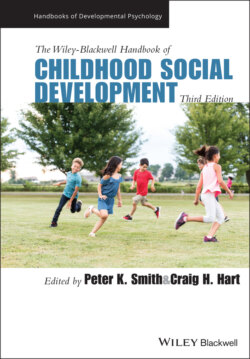Читать книгу The Wiley-Blackwell Handbook of Childhood Social Development - Группа авторов - Страница 81
Enlightenment
ОглавлениеA scholar who wants to think, speak, and write about children has no choice but to come to terms with the Enlightenment. The Age of Enlightenment was an intellectual and philosophical movement that dominated the world of ideas in Europe during the 17th and 18th centuries; it emerged from Renaissance humanism and early aspects of the scientific revolution. The greatest Enlightenment philosopher of all, Immanuel Kant (1724–1804, Figure 5.1), said: “. . . autonomous thinking is finding the ultimate test of truth in oneself (i.e., in one’s own reason); and the fundamental principle of continuously autonomous thinking is Enlightenment.” It is highly recommended to read his pamphlet “Beantwortung der Frage: Was ist Aufklärung” (“An answer to the question: What is Enlightenment”) from 1784 (see Kant, 1799), containing the appeal: “Habe Mut, dich deines eigenen Verstandes zu bedienen!” (“Have the courage to use your own understanding!”) “Sapere aude!”(“Dare to know!”). Even, to make a contemporary addition, when reading claims made in “peer reviewed” “top” journals.
Figure 5.1 Statue of Immanuel Kant (1724–1804).
Modern scholars should open up their minds to the relevant Enlightenment literature. When their scientific work is mainly concerned with children, they can learn a lot about child development and upbringing by following the course of history from the 18th century onwards. Here, Kant’s admiration for Jean‐Jacques Rousseau (1712–1778, Figure 5.2) will serve as the basis of the description of this Western history. Rousseau’s “Émile, ou de l’éducation” from 1762 was called “the birth certificate of pedagogy” by Kant (see Prins, 1963, p. 139) and was later received with at least equal enthusiasm by Johann Wolfgang von Goethe (1749–1832) as “the natural gospel of education,” and by Johann Herder (1744–1803) and Gotthold Lessing (1729–1781) as a “divine work” (see Soëtard, 1989, p. 144). It is good to note that hardly any philosopher has been written about as much as Rousseau, including voluminous literature on the reception of Rousseau’s thinking as such (e.g., L’Aminot, 1992). Classical works on Rousseau include Cassirer (1932, 1955), Burgelin (1952), and Rang (1959). An accessible and abundantly illustrated biography is Soëtard (1989). Many works of Rousseau were originally printed and published in Amsterdam; in The Netherlands there has always been a profound and scholarly interest in Rousseau’s (pedagogical) ideas, as for example in Roland Holst (1918), Brugmans (1951), and Van der Velde (1967). Furthermore, there is a continuing series entitled “Annales de la Société Jean‐Jacques Rousseau” from Geneva (since 1905).
Figure 5.2 Jean Jacques Rousseau (1712–1778).
Source: Allan Ramsay, Jean‐Jacques Rousseau, National Gallery of Scotland).
I have a strong conviction that no educationalist or developmental psychologist can bear this professional title with honor without having determined his or her own standpoint in relation to Rousseau’s Émile. Until some 50 years ago, many colleagues would have endorsed this without a doubt. I am afraid that now they may ironically shrug their shoulders, for what importance does history have, to modern empirical researchers? This chapter is meant as an answer to this question.
